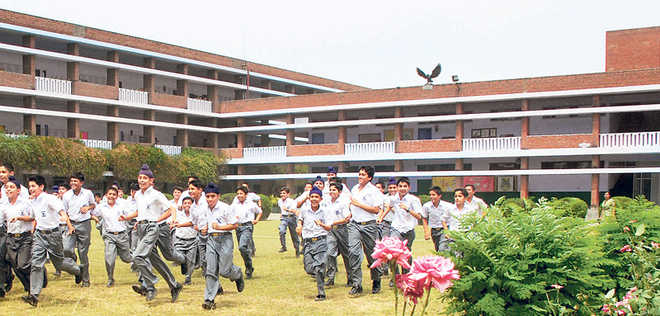Case for neighbourhood schools
Ramnik Mohan
The Education Commission (1964-66) under the chairmanship of Dr DS Kothari (hereafter, the Kothari Commission Report) recommended the concept of the Common School System — a "system of public education which will cover all parts of the country and all stages of school education and strive to provide equality of access to all children." It would include "all schools conducted by government and local authorities and all recognized and aided private schools." The idea was also to maintain such schools "at an adequate level of quality and efficiency so that no parent would ordinarily feel any need to send his child to the institutions outside the system." The neighbourhood school is a corollary of this concept. This idea has been implemented such countries as the erstwhile Soviet Union, Cuba, the US, the UK and China. But, half a century later, this recommendation is still a dream waiting to be fulfilled in India.
What is a neighbourhood school
A neighbourhood school is visualised as one that admits every child in its neighbourhood, irrespective of religion, class, caste, community etc. The child is expected to seek admission to the nearest school. The school is required to admit each and every child within its prescribed vicinity. This obviously has many advantages for the child as well as the community, apart from the issues of socio-cultural inclusion and cohesion that too will stand addressed. Equalisation of educational opportunities, irrespective of the child's background, is one of the obvious objectives in this scheme of things.
We already have non-formal models of such a school in our midst, though in a qualitatively very different context (see box). Working towards widening the scope of such non-formal 'schools' could lead towards the realisation of a neighbourhood school, even if it is playing out in a very limited sense of its meaning. A small beginning of one such school in a city could be the lighthouse for others.
Hurdles in way
Admittedly, one major issue in this would be the coming together of children from various social strata as visualised by the Kothari Commission, according to which the "neighbourhood school plan should be adopted as a step towards eliminating the segregation that now takes place between the .schools for the poor and the underprivileged classes and those for the rich and the privileged ones." The middle-class parents would hesitate to let their children mix with those from the marginalised sections, a scenario reflected in the resistance of private schools to the provision of 25% seats required to be reserved for such children under the RTE Act.
Make a beginning
In the present non-formal sector scenario, a beginning could, perhaps, be made by especially those of these initiatives that have the basic infrastructure — rooms (even if very few), an office and a reasonably good open space for the children to play in. Persons leading the initiative, possibly coming from a middle-class setting could, along with other enlightened citizens, try to convince those around them and be instrumental in bringing in children from this stratum of society. Even if the numbers are disproportionate, it is an experiment worth being tried for the larger purpose of the neighbourhood school. The idealism inherent in the situation is, in fact, the catalyst for such attempts to be made. The advantages in the long run would outweigh the short run troubles.
The onus for the implementation of the idea of the common school system — and the neighbourhood school — lies with the government. As the Kothari Commission Report said, "The roles of local bodies and private organizations in school education should be properly integrated with those of the State Governments to ensure that the minimum conditions necessary for the successful working of educational institutions are provided in every institution within the common system of public education, irrespective of its management".
The real tragedy is that governments lack the vision, ability and will to do so. Even after 50 years of this commission's recommendation of spending 6 per cent of the GDP on education, this has not been done and the government's structures of schooling face a major crisis. The private sector continues to have a field day. In such a scenario, only a push for betterment from the people on the ground will force the governments to address such issues. The voluntary, dedicated efforts of those working in the non-formal sector of education need to be recognised and appreciated and they could possibly develop models for the neighbourhood schools in due course.
This, of course, is nothing more than a very brief outline for such initiatives to come up but the fact that such groups exist on the ground is in itself a good sign. In this lies a small ray of hope for the debate on the common school system to remain alive and take a positive direction.
Non-formal school models
Groups working with children of marginalised and minority sections of society in a particular neighbourhood have proved that with some dedicated hard work, efforts to bring children together to one place for education can bear fruit. Children who are dropouts or who have never gone to a formal school are brought together to be educated in a non-formal setting with amateur teachers and supportive individuals helping such groups sustain themselves through the years. Most of these 'schools' run in a very informal setting, with no regular classrooms and just the minimal requirements in terms of teaching-learning materials and methods. They may lack the expertise required in the domain of education, such as the teaching-learning processes to be adopted for various subjects, and yet, the dedication and commitment of those running such initiatives is exemplary. Once they are well-equipped in terms of the ways of imparting education too, these efforts could bear good fruit in terms of the educated child joining the mainstream of education with confidence.
The writer is a professor actively engaged with initiatives of education









